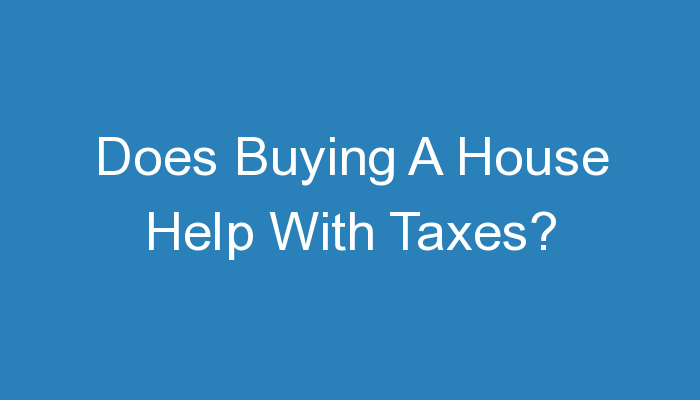Buying a house is one of the largest investments you can make in your lifetime. It comes with great responsibility, but also potential tax savings. Buying a home can be incredibly rewarding, both emotionally and financially, if you know how to use it to your advantage. But does buying a house help with taxes? The answer is yes – but only if you understand the different tax deductions available and how they impact your overall tax bill. In this blog post, we’ll explore the basics of home ownership and taxes, so that you can make an informed decision when it comes time to file.
What are the tax benefits of owning a home?
Owning a home comes with a number of tax benefits that can save you money every year. The most well-known benefit is the mortgage interest deduction, which allows you to deduct the interest you pay on your mortgage from your taxes. This can lead to substantial savings, especially if you have a large mortgage.
Other tax benefits of owning a home include the ability to deduct property taxes from your taxes, and to deduct certain home improvement expenses. These deductions can add up over time and can significantly reduce your tax bill.
If you are considering buying a home, be sure to talk to your accountant or tax advisor to see how these deductions could save you money.
How do these tax benefits work?
When you own a home, you are able to deduct certain expenses on your taxes. These deductions can include items such as mortgage interest, property taxes, and private mortgage insurance. Additionally, if you use your home as your primary residence, you may also be able to deduct certain home improvement costs.
What are the other financial benefits of owning a home?
Assuming you’re not itemizing, the main financial benefit of owning a home is the mortgage interest deduction. For 2020, you can deduct the interest on up to $750,000 of qualified loans. This deduction can be a big help in offsetting the cost of owning a home.
Other financial benefits of owning a home include:
-Equity build-up: As you make payments on your mortgage, you build up equity in your home. Equity is the portion of your home’s value that you own outright. You can tap into this equity by refinancing your mortgage or taking out a home equity loan or line of credit.
-Forced savings: When you own a home, you’re forced to save money each month as you make your mortgage payment. This can help you build up a nest egg of savings that can be used for things like emergencies, retirement, or tuition payments.
-Potential appreciation: Over time, your home may increase in value, providing you with another source of potential income should you decide to sell.
Are there any downsides to buying a house for the purpose of reducing taxes?
The main downside to buying a house for the purpose of reducing taxes is that it can be a costly investment. Not only do you have to come up with a down payment, but you also have to pay for ongoing maintenance and repairs. In addition, property taxes can increase over time, eating into any potential savings. Another downside is that you tie yourself to one location when you purchase a home, making it more difficult to move if your job or lifestyle changes.
Conclusion
We hope this article has provided you with a helpful overview of the ways in which buying a house can help with your taxes. Buying a home is an exciting milestone, and it’s even more rewarding when tax deductions are part of the equation.
It’s important to do your research before embarking on homeownership so that you know exactly what benefits you’ll receive and how to maximize them. With some careful planning, owning a home can be made even more affordable by taking advantage of various tax breaks available for homeowners.

